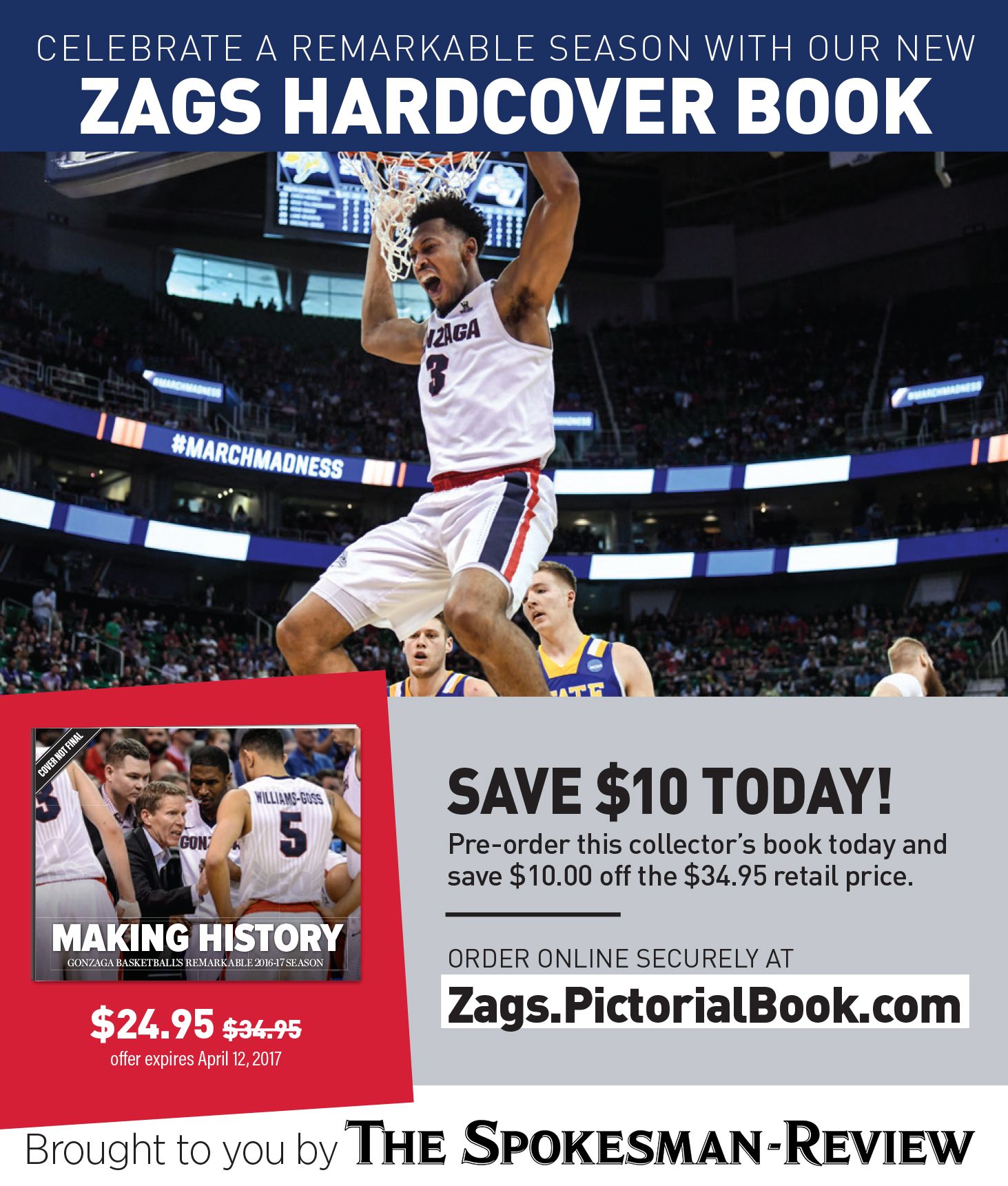Gonzaga president Thayne McCulloh sees Bulldogs’ history, success tied to community

GLENDALE, Ariz. – Gonzaga president Thayne McCulloh stood in the student section at the end of the basketball court on Saturday. It wasn’t quite like being inside the McCarthey Athletic Center – it was almost better.
Inside a football stadium filled to the brim with nearly 80,000 spectators was McCulloh’s favorite team playing on the biggest stage in college basketball. For the first time, the Zags were playing for a chance at the national title, something he and his small Jesuit school of 5,000 undergraduates have never witnessed at Gonzaga.
“Truthfully, I have been in this work and I have been with these coaches and with coach (Mark) Few and with, you know, these players and the players before them now for so long that it just feels really good to finally see them break through to the place where they are,” McCulloh said.
McCulloh is in his seventh year as the president of the university, but he has watched the school and basketball program grow in Spokane for the nearly 30 years that he has been part of the GU staff. Since taking over his the role as president in 2010, he’s traveled with the Zags and has had the opportunity to watch them in several postseason showings.
But nothing has quite measured up to the scene on Saturday inside the University of Phoenix Stadium, when the Zags jumped and cheered after their win over South Carolina that sent them to the national championship game.
“It’s a spectacle,” McCulloh said. “It’s absolutely nothing like anything else that happens prior to the Final Four.”
There’s one more item left to write in Gonzaga’s history books on Monday – the school’s first basketball national title.
Gonzaga, the Zags, Few and the rest of the basketball coaching staff are well-deserving of such a title after fighting for it for so many years, said McCulloh, and so is the city that has rallied behind the Zags for just as long.
“I’m not sure that there were as many people in the community who might have believed that this is possible until, maybe until this year, and until this tremendous run,” McCulloh said. “But this community has supported … this program for a long time.”
Over the years, McCulloh has watched the city stick by the Zags and the university, even after the tough losses and disappointing endings.
For decades, Spokane has stood behind the Zags as they grew into the national spotlight. The local fans made sure all the home games were sold out. They donated to the program, to grow it and watch it thrive in person inside the Kennel.
The fans were there when the Zags went to the Elite Eight in 1999, the first time in school history. They were they there when Arizona edged GU by one point in double overtime that ended Gonzaga’s 2003 run in the second round of the NCAA Tournament.
They watched Adam Morrison lay on the court and cry after the Zags fell to UCLA in the 2006 Sweet 16 – Morrison’s last game in a Zags uniform.
Then there was 2013, when the city of Spokane saw its own Dream Team fall in the round of 32 to Wichita State.
Even in 2015, when the Zags found themselves in the regional final for only the second time in school history, the fans were cheering and feeling proud of their Zags.
This year, the fans were right behind the Zags again, hoping for a chance to rewrite the history books. McCulloh said if the Zags finally take home the national championship, he hopes the community will feel just as part of that success as all of Gonzaga.
“I hope Spokane celebrates because I hope that Spokane sees this very much as a recognition of what we – community, university and program – were able to do,” McCulloh said.
But even if the Zags don’t bring home that national trophy, McCulloh knows his community will still stand behind them.
“I think Spokane’s already proud,” McCulloh said.
